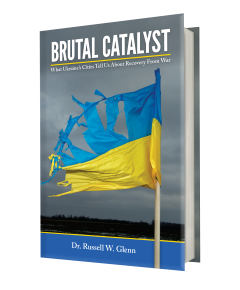Home > Open Access Journals > JSS > Vol. 13 > No. 2 (2020)
Author Biography
Pierre Pahlavi
Full professor at the Royal Military College of Canada in the Department of Defence Studies, co-located with the Canadian Forces College, Canada’s Staff and War College. His research focuses on Iran and its asymmetric strategies, public diplomacy and the use of force in the international system. He has published in various journals in strategic and security studies and has recently published a book in French on the Iranian revolution, Le marécage des Ayatollahs, prized by the Académie française. He has a Ph.D. in political science from McGill University, Montreal, Canada.
Eric Ouellet
Full professor at the Royal Military College of Canada in the Department of Defence Studies, co-located with the Canadian Forces College, Canada’s Staff and War College. His research focuses irregular warfare in its various forms, institutional adaptation to new forms of warfare and military command at the strategic and operational level. He has published in various journals in strategic and security studies, led numerous studies on the behalf of the Canadian Department of National Defence and NATO. He has a Ph.D. in sociology from York Univeristy, Toronto, Canada.
DOI
https://doi.org/10.5038/1944-0472.13.2.1796
Subject Area Keywords
Asymmetric warfare, Diplomacy, Information operations, Iran, Strategy
Abstract
This paper presents an analysis of Iran’s information and mass diplomacy efforts in terms of its use of traditional written and audio-visual media, as well as through internet-based ones. Iran’s information efforts are both at the centre of its national strategy in dealing with its adversaries and its domestic policies to maintain and protect the regime. Furthermore, it is also well-aligned with the overall Iranian doctrine to take 360 degree approach to security, while avoiding direct military confrontation. A better understanding of Iran’s approach and inherent logic behind its information warfare can help anticipating the country’s next move.
Recommended Citation
Pahlavi, Pierre and Ouellet, Eric. "Iran: Asymmetric Strategy and Mass Diplomacy." Journal of Strategic Security 13, no. 2 (2020)
: 94-106.
DOI: https://doi.org/10.5038/1944-0472.13.2.1796
Available at:
https://digitalcommons.usf.edu/jss/vol13/iss2/6


